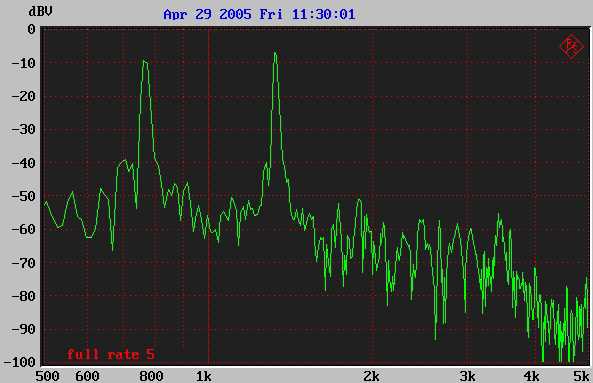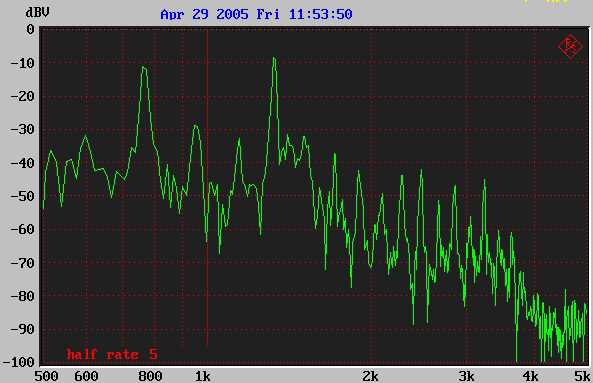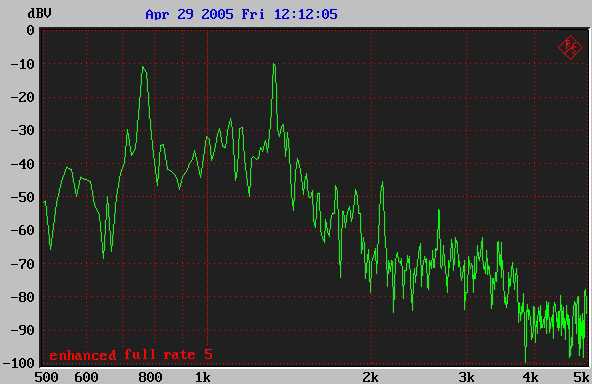Generating of DTMF tones in GSM networks
The Dual Tone Multi Frequency (DTMF) signal is composed by two frequencies as reported in the following table:
|
A decoder will give the correspondent digit after detecting the two carrier frequencies according to the table. In order to detect and distinguish the pair of frequencies sent, the common algorithms require usually the total power level of unwanted frequencies to be at least 20dB below the lowest frequency signal with a signal to noise ratio greater than 23dB.
DTMF tones generated by AT+VTS
Responding to the command AT+VTS, the module sends a command to the network infrastructure to generate on the other audio party the correspondent DTMF signal. The DTMF tone duration can be controlled partially by the module since it sends a "start playing tone" request and a "stop playing tone" request and these can be specified by the application controlling the mobile, except from time shifts introduced by the network. The network infrastructure generates this tone perfectly aligned with specifications requirement, without introducing problem during recognition.
DTMF tines generated by separated source
The DTMF signal is generated by a separated source, typically a landline (corded) phone, and sent to the input lines of the module (Uplink path). The frequencies couples, sent on the voice channel,
are digitised, encoded and sent by the digital transmission system. In the receiving device the signal would be reconstructed, but since the digital transmission of the voice channel is compressed
and optimised for voice, this reconstruction depends on the kind of voice compression used for the transmission, and generally will not perfectly match the original signal.
There are four main types of compression for the voice channel and only the Full Rate
one has no distortion, while the other three offer a different trouble level (see figures):
- Half Rate: Problems arise because of the incoming signal containing the test signal plus other frequencies, with an amplitude up to –10dBc
- Enhanced Full Rate: Bigger problems arise in decoding the incoming signal ,that contains the test signal plus spurious frequencies added by the voice compression process, whose amplitude could be very high, up to –10dBc. Not only, the two useful components vary continuously theirs amplitude.
- Adaptive Multi Rate: This is the worst case, because it is a mixed one.
- Full Rate: In this case the incoming signal is stable and clean, and there is no problem to decode it since it respects the DTMF requirements. But it is not applicable to limit the voice coding to only Full Rate , because the network decides itself which coded is used.
|






